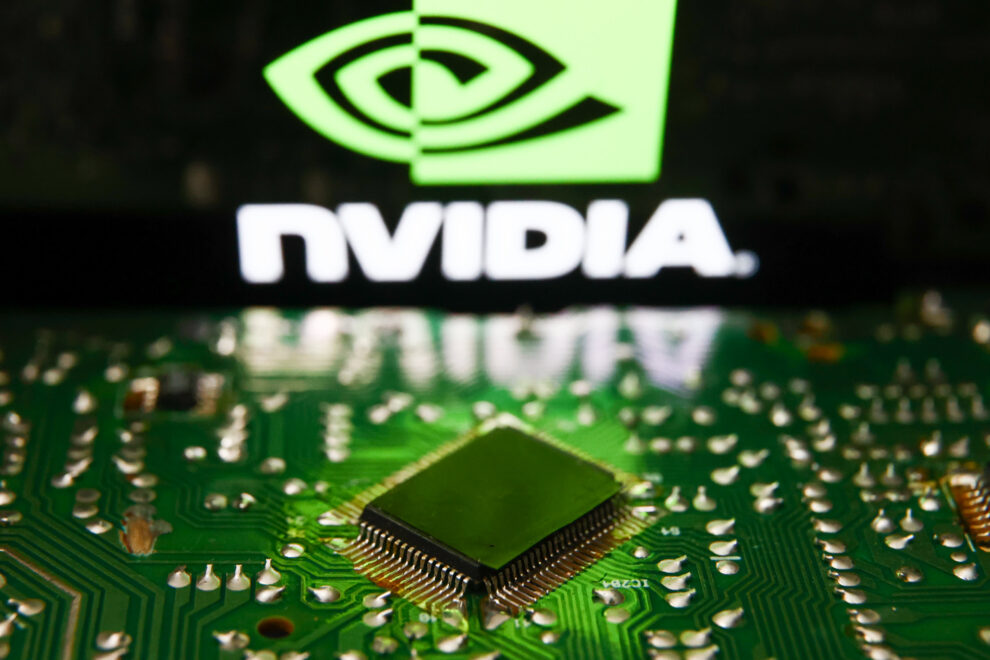In the fast-evolving landscape of artificial intelligence (AI), Nvidia has emerged as the front-runner, dominating the AI chip market with an impressive array of powerful processors. However, the throne is under siege as industry titans like Google, Intel, and Arm ramp up their efforts to dethrone Nvidia from its AI chip supremacy. This unfolding competition marks a significant shift in the tech industry, highlighting the pivotal role of AI chips in shaping the future of technology.
Key Highlights:
- Nvidia, known for its robust GPUs, has capitalized on the generative AI boom, achieving record-breaking revenue and securing an estimated 70% market share in the AI chip sector.
- The company’s latest processor, the H200, exemplifies Nvidia’s commitment to accelerating product innovation in response to growing AI demands, further solidifying its market position.
- Despite Nvidia’s dominance, with a staggering 95% hold on the AI chips market, competitors like AMD, Intel, and Arm are not far behind, each plotting their strategic moves to carve out a significant presence in the lucrative AI chip domain.
- Regulatory scrutiny in Europe, led by France’s competition authority, underscores the concerns over Nvidia’s overwhelming market influence, potentially opening doors for competitors.
- Google, Intel, and other tech behemoths are developing their AI chips and software, aiming to reduce dependency on Nvidia and disrupt its market dominance.
The Competitive Landscape:
Nvidia’s journey to AI chip dominance began with its early investment in GPUs designed for parallel computing, which proved ideal for AI applications. This foresight has allowed Nvidia to lead the AI revolution, transforming from a gaming-centric graphics card manufacturer to a tech industry titan with a market valuation of $1 trillion.
However, the landscape is changing. Intel and AMD are fine-tuning their AI strategies, developing chips and software to challenge Nvidia’s reign. With Intel’s focus on gaining a larger AI chip market share and AMD announcing the MI300X chip, designed to offer more memory and reduce the number of GPUs needed, the race is heating up.
Moreover, tech giants such as Google and Amazon are venturing into creating their AI chips, signaling a shift towards self-reliance and potentially diminishing Nvidia’s market hold. This strategic move not only showcases the growing importance of AI chips across various industries but also highlights the competitive edge that in-house chip development can provide.
Regulatory and Market Dynamics:
Nvidia’s market dominance has not gone unnoticed by regulatory bodies. In Europe, Nvidia faces scrutiny from the European Commission, concerned about the company’s significant market share and its impact on competition and innovation. This regulatory attention underscores the broader implications of Nvidia’s dominance, raising questions about market fairness and the barriers to entry for emerging players.
As the AI chip market continues to evolve, Nvidia remains at the forefront, driving innovation and setting industry standards. However, the concerted efforts of Google, Intel, and other competitors, coupled with regulatory scrutiny, suggest a dynamic and uncertain future. The ongoing developments in AI chip technology and strategic market maneuvers will undoubtedly shape the tech landscape, potentially altering the balance of power in the years to come.
In this rapidly shifting landscape, the battle for AI chip supremacy is more than a mere competition; it represents the strategic positioning and technological advancements that will define the future of the AI-driven world. As Nvidia continues to innovate and its competitors strive to catch up, the tech industry stands on the brink of a new era, marked by groundbreaking developments and transformative potential.









